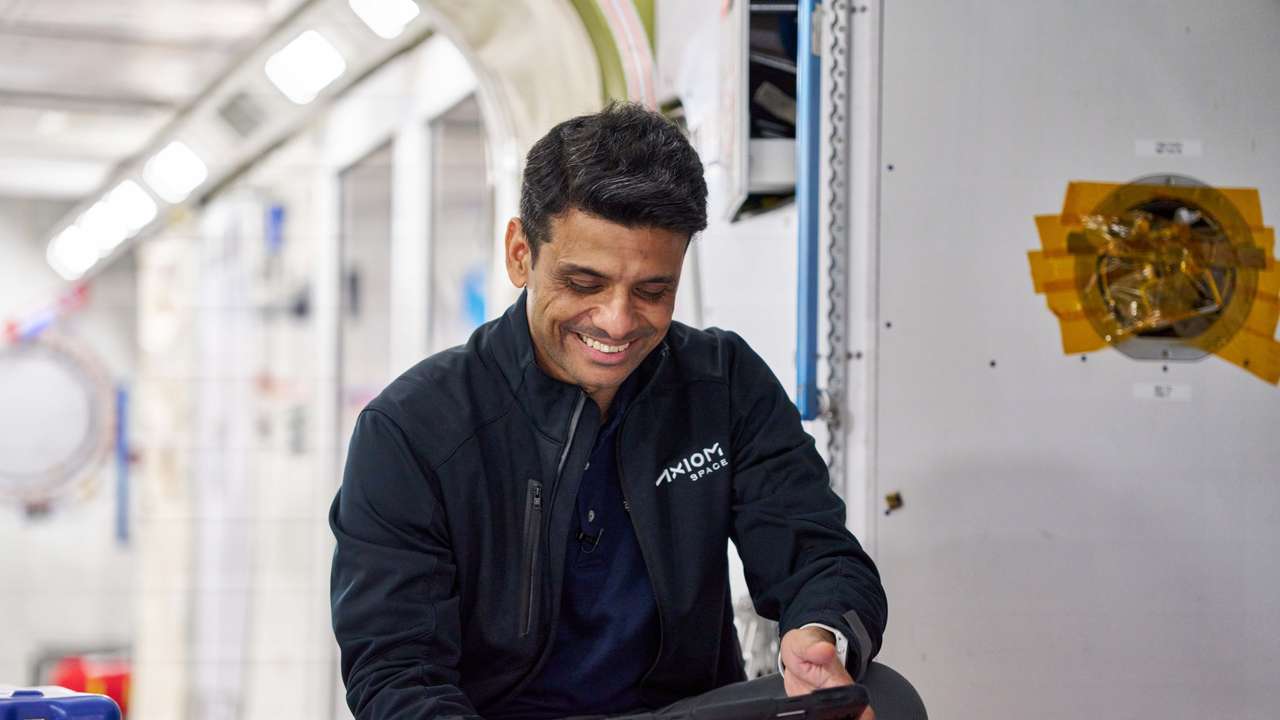Shubhanshu Shukla, India’s first astronaut to fly to the International Space Station

Group Captain Shubhanshu Shukla is set to become the first Indian citizen to travel to the International Space Station, marking a major milestone in India’s growing presence in global space exploration.
The Indian Air Force pilot will launch on June 10 aboard a SpaceX Falcon 9 rocket as part of Axiom Mission 4, a private mission organised by Axiom Space in collaboration with NASA and ISRO.
He will join a four-member crew led by former NASA astronaut Peggy Whitson and spend up to 14 days aboard the ISS, conducting scientific research and outreach activities.
Shukla, 38, was born in Lucknow and was inspired to join the armed forces after the 1999 Kargil War.
A graduate of the National Defence Academy and Indian Institute of Science, he has served the Indian Air Force for nearly two decades, flying several combat and transport aircraft.
He was selected for India’s human spaceflight programme in 2019 and trained in both Russia and India before being chosen for this international mission.
While he is also one of the four astronauts named for India’s upcoming Gaganyaan mission, the Axiom flight will make him the second Indian to travel to space and the first to board the ISS.
His training journey
In preparation for his flight, Shukla underwent months of advanced training with NASA, the European Space Agency, and Japan’s space agency.
He completed modules on emergency operations, life support systems, and international experiments aboard the Columbus and Kibo modules of the ISS.
According to Axiom, the crew has been trained to operate across multiple segments of the space station, including educational outreach and commercial activities.
This level of international collaboration underlines the growing intersection between public and private space missions and India’s evolving role within that framework.
Shukla's flight not only continues the legacy of Rakesh Sharma, the first Indian in space in 1984, but also highlights how new generations of astronauts are emerging from nations that once played limited roles in human spaceflight.
Personal life
Beyond the spacesuit, Shukla is a family man. He lives with his wife Kamna, a dentist, and their young son.
His family in Lucknow has followed his journey with pride and anticipation. Though calm and disciplined in public appearances, those close to him describe him as deeply curious, especially about space science, philosophy, and even horoscopes, despite identifying as agnostic.
As India watches one of its own head to the ISS, the moment signals more than personal achievement.
It reflects the country’s growing technical ambitions and its ability to participate meaningfully in complex global missions.
This story is written and edited by the Global South World team, you can contact us here.